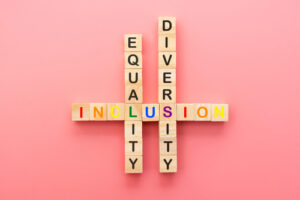Welcome to Extreme Investor Network, where we provide unique insights and valuable information on various topics, including the impact of diversity on unionization in the workforce. In today’s blog post, we delve into the relationship between diversity, divisive practices, and the strength of collective power in organizations.
Businesses have long employed the strategy of divide and conquer to prevent unionization among their workforce. Research has shown that highly diverse workplaces are less likely to form unions, as individuals tend to align more with their identities based on race, gender, religion, and social class rather than seeing themselves as citizens of a nation. This phenomenon is also observed in politics, where divisive tactics weaken the collective power of the people.
A study titled “Racial Diversity and Union Organizing in the United States, 1999–2008” found that diverse establishments were less likely to experience successful union organizing attempts. The researchers concluded that organizers in more diverse units were more likely to give up before union elections, as employees tended to attribute unfair work practices to racial injustice rather than recognizing the broader injustice faced by the entire workforce.
Companies like Whole Foods have implemented measures to track and mitigate the risk of unionization, including analyzing external risks, store risks, and team member sentiment. A correlation was found between diversity and unionization risk, with less diverse stores having higher chances of unionizing. Additionally, team member sentiment was negatively impacted by diversity, as employees were more likely to feel singled out based on race.
Amazon, the parent company of Whole Foods, has actively worked to combat unionization efforts by promoting diversity, equity, and inclusion initiatives. While these companies score highly on diversity metrics, their underlying motives may involve weakening the power of their workforce through divisive tactics.
On a broader scale, divisive practices are also observed in global politics, where leaders use differences to diminish the power of united citizens. This is evident in woke policies, DEI hiring practices, and efforts to emphasize individual identities over collective unity. By focusing on defending individual identities based on race, religion, and other factors, people may inadvertently contribute to the fragmentation of collective power.
Join us at Extreme Investor Network for more thought-provoking insights on economics, finance, and the impact of social dynamics on the business world. Stay informed, stay empowered!

